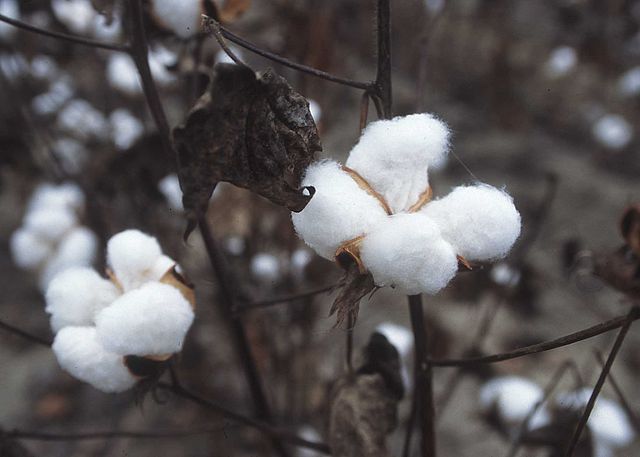 |
This is a file from the Wikimedia Commons. Information from its description page there is shown below.
Commons is a freely licensed media file repository. You can help.
|
English: cotton plant, Texas, 1996, after chemical haulm (topkilling Chemical ; usually by the Monosodium methyl arsenate used to quickly kill the leaves that would interfere with harvesting machines). This chemical is a growing source of residual contamination of soils by arsenic, which is not degradable; Photo courtesy of USDA Natural Resources Conservation Service.
Français : Plants de coton photographié juste avant la récolte, ici au Texas, en 1996, après défanage chimique (généralement par du Méthane arsonate monosodique, pesticide herbicide utilisé pour rapidement tuer les feuilles qui gêneraient les machines de récolte. Ce produit chimique est source de pollution résiduelle croissante des sols par l' arsenic qui n'est pas dégradable. Photo de l'USDA Natural Resources Conservation Service (Open data)
Source
http://photogallery.nrcs.usda.gov/Index.asp This came from the website
Licensing
| Public domainPublic domainfalsefalse |
 |
This image or file is a work of a United States Department of Agriculture employee, taken or made as part of that person's official duties. As a work of the U.S. federal government, the image is in the public domain.
|
|
File usage
The following pages on Schools Wikipedia link to this image (list may be incomplete):
SOS Children aims to make Wikipedia suitable for young learners. SOS Childrens Villages is a global charity founded in 1949 to give children who have lost everything the childhood they deserve. There are many ways to help with SOS Childrens Villages.




